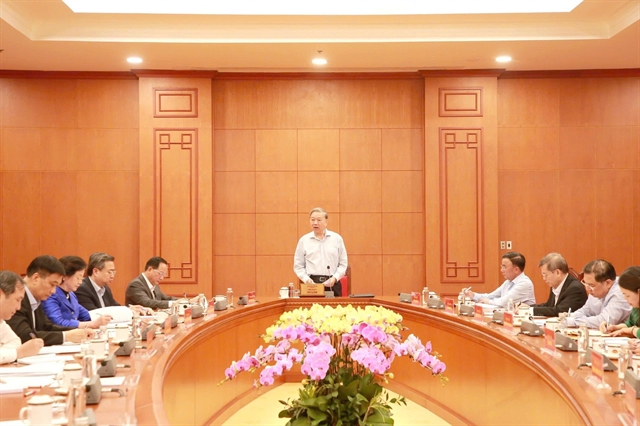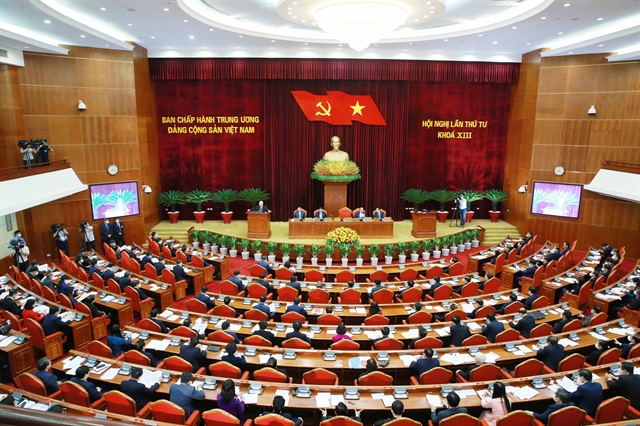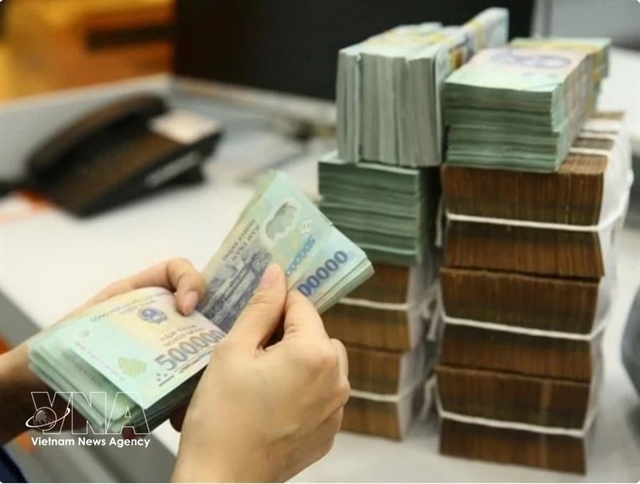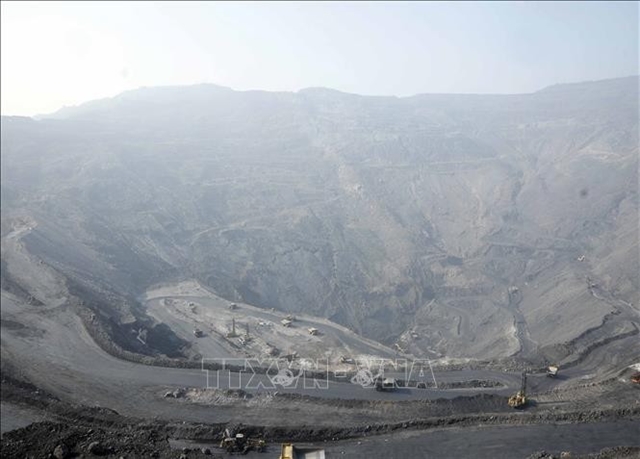 Politics & Law
Politics & Law

General Secretary of the Communist Part of Việt Nam Nguyễn Phú Trọng recently signed the Party’s Decision No.37 on the updated list of 19 forbidden acts for Party members.

|
| The fourth plenum of the Party Central Committee opened on October 7 in Hà Nội. — VNA/VNS Photo Trí Dũng |
HÀ NỘI — General Secretary of the Communist Party of Việt Nam Nguyễn Phú Trọng recently signed the Party’s Decision No.37 on the updated list of 19 forbidden acts for Party members.
The list, coming after the recent fourth plenum of the Party Central Committee held earlier this month with a focus on Party building and rectification, means to increase discipline inside the Party and uphold moral values, the vanguard and example-setting nature of Party members, as well as enhance their leadership.
The latest revisions to the list are considered necessary to get with the times, as its predecessor was compiled exactly 10 years ago. The decision is open to amendments during implementation, and Party cells are supposed to report annually to higher levels on the implementation of the Decision.
Following is the full list of 19 items that Party members are forbidden from doing (with new additions compared to the 2011 edition put in bold).
1. Creating speeches, writing, doing acts that go against the Party Platform, the Party Charter, and the Party’s resolutions, directives, conclusions, regulations, and decisions; as well as violating the law.
2. Failure to comply with the Party’s organisational and operational principles; nominating themselves or receiving nominations – from State organisations, the Việt Nam Fatherland Front, socio-political organisations, mass organisations – without having obtained authorisation from their Party cell.
3. Defying, denying or distorting Marxism-Leninism and President Hồ Chí Minh’s thoughts and ideology; failing to fulfil the responsibility of setting an example; egocentrism, opportunism, self-interest; short-term mindset; “directional unity” and “democracy only in name” (the term used to indicate falling in line with other members, not standing up when violations occur, or not fighting to protect the right things); authoritarianism, autocratism, bureaucratism, or being out of touch with the people.
4. Providing, disclosing, or writing articles, posting confidential information or secret Party and State documents; storing, distributing, propagating, or inciting others to propagate documents or information that go against the Party’s regulations or State laws and policies.
5. Writing articles or providing documents for other people to write, speak, publish false news or inaccurate articles, not posting feedback or corrections according to regulations. Composing, producing, storing, and disseminating works and works of literature and art that are “unhealthy, contrary to Việt Nam’s fine customs and traditions, provocative and causing negative influence in society”; Distributing articles, speeches, interviews, memoirs, movies, and photos in contravention of regulations.
6. Denunciations with fabricated or false accusations; sending or distributing complaints and denunciations in any form to agencies that do not have the authority/jurisdiction to settle the case. Threatening, taking punitive actions, or exacting revenge on complainants or denunciators in contravention of the Party’s regulations and State laws on protection for whistle-blowers, critics, and commenters; inciting, bribing, or forcing others to make complaints or denunciations.
7. Organising and participating in organisations and associations contrary to the Party's regulations and the State’s laws; joining protests and mass gatherings that cause public disorder.
8. Organising factions or cliques, causing internal disunity; Abusing the system of reports and feedback to the Party and the State to make defamatory remarks and slander other individuals or organisations.
9. Being dishonest in asset and income declaration; Using illegal diplomas, certificates; having a second citizenship, transferring assets and cash overseas, opening overseas bank accounts and trading assets and properties overseas against regulations.
10. To assume the prime responsibility for, or advise on, the promulgation of documents with contents contrary to the Party’s regulations and the State’s laws. Breaching regulations in the investment, construction and use of houses, land, resources, finance and assets of the Party and State.
11. Violating public service ethics, covering up, making false reports during the discharge of duties; negligence, resulting in disunity, corruption, wastefulness in agencies, units, localities, and individuals under their direct management.
Failure to report, properly handle acts of corruption, wastefulness, and other offences.
Interfering with, exerting influence, or letting one's spouse, children, or close relatives, and others take advantage of their positions for personal gain.
Taking advantage of the Party’s policy of encouraging and protecting cadres with creative, dynamic acts in the interests of the common good to commit or cover up self-interest and corrupt acts and other vices and transgressions of the Party’s regulations and the State’s laws.
12. Lobbying for positions, covering up, aiding and abetting or interfering, exerting influence to have themselves or others recruited, appointed to positions, promoted, transferred, nominated for commendations or titles, overseas study or other policies for cadres against regulations.
13. Interfering with or influencing inspections, supervision, auditing, investigation, prosecution, trial, judgment enforcement, consideration of amnesty, settlement of complaints and denunciations to cover up or and aid and abet violations of the Party’s regulations and the State’s laws. Influence, coerce or bribe organisations and individuals to reduce punishments handed down to others.
14. Embezzlement, or giving, receiving, brokering bribes; organising, participating in, or facilitating money laundering, unlawful borrowing and lending activities.
15. Giving or receiving gifts in any form to influence organisations and people into making the wrong decisions, for their own benefit or for individuals, organisations, agencies, or businesses.
16. Failure to practise thrift, allowing loss and waste to occur in the management and use of public finances and assets; procurement, management and use of public assets in contravention of regulations.
17. Intervention and/or exerting influence to let oneself, spouses, children, fathers, mothers, brothers, sisters, siblings, or family members on their spouse’s side, and others, travel, study, and receive treatment with funding from organisations and individuals related to the field of their jurisdiction.
18. Organising or participating in gambling activities; using narcotics; inappropriate consumption of alcoholic beverages, or to the point of drunkenness/alcoholism, leading to other social vices.
Throwing extravagant weddings, funerals and other events for oneself or one’s family, or using these occasions for illicit gains.
Indifference, insensitivity to wrongdoings in society, committing acts of domestic violence, violations of the population policy, cohabitation, and violating regulations on marriage with foreigners.
19. Superstition, taking part in superstitious activities; supporting or joining illegal religions or abusing religious and belief activities for personal gain. — VNS




